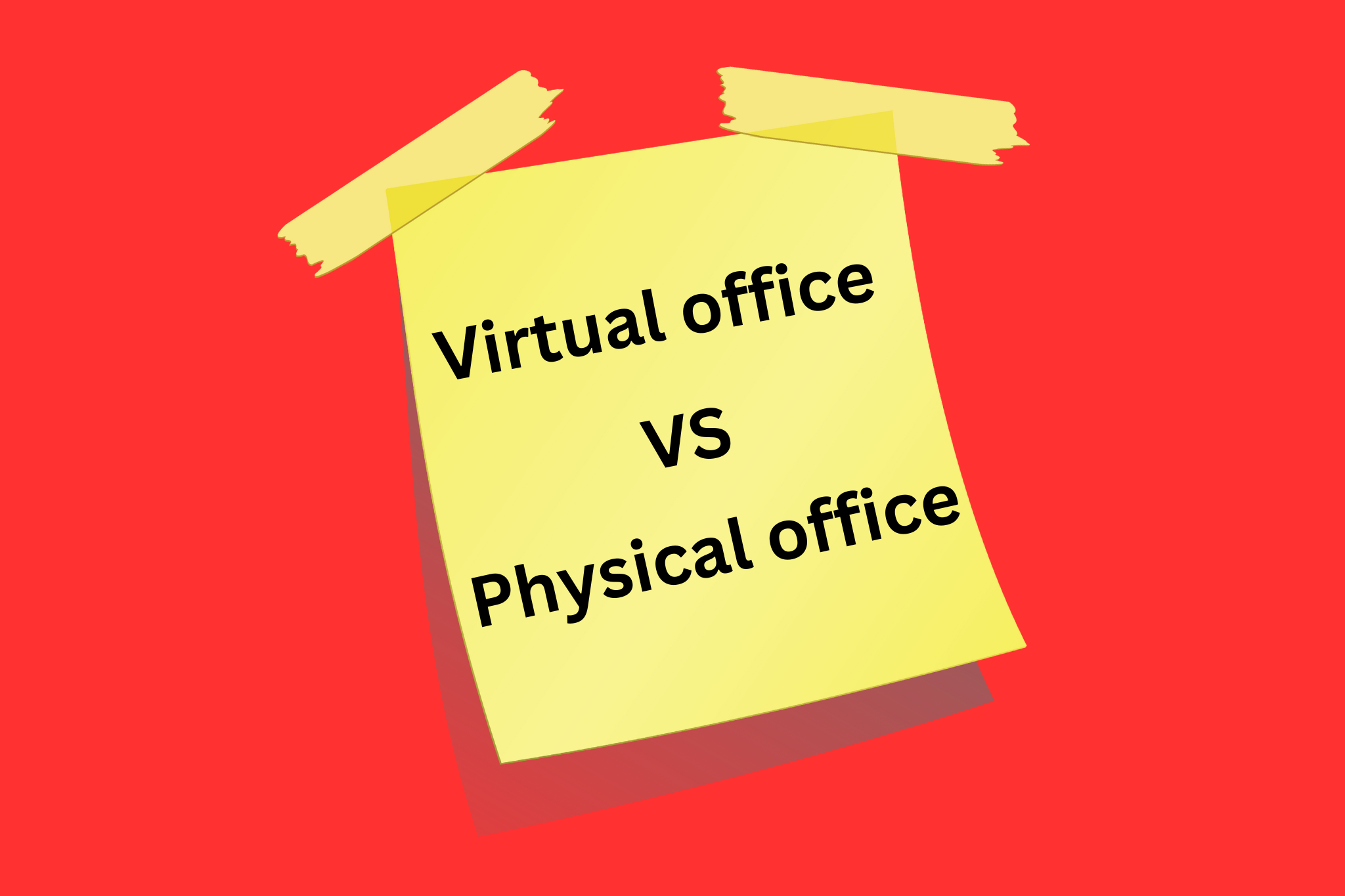How to Select the Best Virtual Address Provider for Your Business
With remote work on the rise and traditional office setups becoming less relevant, virtual addresses are emerging as a smart alternative. They offer a professional presence without the hefty costs of physical space. Whether you're a start-up or an established business, choosing the right virtual address provider is very important, as it will significantly impact your brand image, productivity, and client relationships.
When selecting a virtual address provider, take the time to evaluate the following five key factors before making your final decision:
1. Business Address and Location Credibility
The most important aspect of a virtual address is its address location. A professional, good-standing address in a reputable area will not only look good but will give your business a professional brand name and can have a direct effect on clients' and partners' impression of your company. Whether your business belongs in the sector of legal, financial, consulting, or technology, wherever your virtual address is located, it must reflect seriousness and professionalism about your operations.When considering the virtual address location, keep these two points in mind:
1. Avoid cheap, obscure locations: Just because an address is inexpensive doesn’t mean it’s suitable. Clients often search addresses on Google Maps, and an unfamiliar or low-profile location could damage your credibility.
2. Don’t assume the most expensive address is the best fit: High-end locations like Mayfair or Oxford Street may look impressive, but they might not align with your business type. This mismatch can seem out of place and may even raise doubts in the minds of clients.
2. Full Range of Services
Not all virtual address providers offer the same level of service. While some only provide a mailing address, others offer complete business support services. Seek providers that offer a full range of services you need now—and potentially in the future.Choosing a provider with a broad range of services ensures that as your business grows and your needs evolve, you’ll have the support to grow without switching providers. At London Virtual Address, we go beyond the basics of virtual addresses and mail forwarding. We also offer essential services that many start-ups need, including:
• Accountancy services
• Website design
• Logo design
• Banking
3. Reputation and Professional Standards
Before signing up with a virtual office provider, take time to do thorough research. Look into third-party reviews, client testimonials, and their social media presence to get a sense of their reputation. A provider trusted by well-established companies is more likely to deliver professional, reliable service.Also, ensure the provider complies with all legal and regulatory standards—this includes proper company registration, data protection policies, and licensing by HMRC. Don’t hesitate to ask how they handle sensitive issues, such as data breaches or compliance audits.
4. Responsiveness and Customer Support
Customer support is a key factor when choosing a virtual address provider. A reputable company should offer reliable, accessible, and well-structured support to help you resolve issues quickly and keep your operations running smoothly. Since you're not physically present at the address, having responsive support becomes even more important.Here are a few things to look into when assessing a provider’s customer service:
1. Contact information
Check how easy it is to find their contact details, such as an email address, telephone number, or live chat option. If a company makes it difficult to get in touch, that may be a red flag. A trustworthy provider will clearly display multiple contact options on their website, usually in the header or footer.
2. Response time
Test how quickly they respond to inquiries. Try sending them a message or an email and monitor how long it takes to get a reply. Quick responses are a sign of a well-managed and attentive team.
3. Email and Ticketing Support
Check whether the company provides estimated response times for emails or support tickets. This shows transparency and a structured support system. Some providers even have service-level agreements (SLAs) that guarantee a response within a certain timeframe.
4. Phone Support and Friendliness
Call the company directly. This gives you a feel for how professional, knowledgeable, and approachable their staff are. Are they friendly and patient, or rushed and dismissive? A simple phone call can tell you a lot about their customer service culture.
5. Help Centre or Knowledge Base
A well-established provider often has a help centre, FAQ page, or knowledge base on their website. This indicates they’ve taken the time to anticipate common questions and provide self-help resources, which saves you time in the long run.
Once you've reviewed these points, you’ll have a much clearer picture of the provider’s customer service quality. Remember, even if a virtual office seems perfect on paper, poor support can lead to frustration and missed opportunities—especially if issues arise with mail handling, compliance, or account updates.
5. Transparent and Competitive Pricing
When browsing for a virtual address, looking at the pricing is very important. Pricing can vary significantly between providers, and the lowest upfront cost doesn’t always mean the best value. That’s why it’s essential to thoroughly understand the provider’s pricing structure before signing up.Make sure there are no hidden fees or surprise costs. Ask yourself:
• Are the charges clearly stated and easy to understand?
• Is mail forwarding included, or will there be extra charges each time a letter is sent?
• Are there any administrative or setup fees that aren't obvious upfront?
A trustworthy provider will offer full transparency and break down exactly what you’re paying for—monthly or annually. This includes services like mail handling, scanning, any other add-ons. Hidden charges can add up quickly and affect your overall budget.
Also, don't forget to ask about renewal fees. This is a common area where many new clients are caught off guard. A provider may offer an attractive introductory price, only to increase the cost significantly at renewal. Ask what the standard renewal rate is and whether it’s fixed or subject to change.
Ultimately, you should choose a provider that offers good value for money—reliable services at a fair, competitive price. Clear and upfront pricing not only builds trust but also allows you to make a well-informed decision and manage your expenses effectively over time.
Conclusion
Virtual addresses are becoming a practical and cost-effective solution for businesses in the era of remote work. Choosing the right virtual office provider is essential, as it will directly impact your business image.When selecting a virtual address provider, it is important to research their reputation through reviews and client feedback, and to evaluate the quality of their customer support. Transparent and competitive pricing is crucial—look out for hidden fees and ask about renewal charges. A reliable virtual office provider should offer clear communication, responsive service, and strong long-term value for your business.




